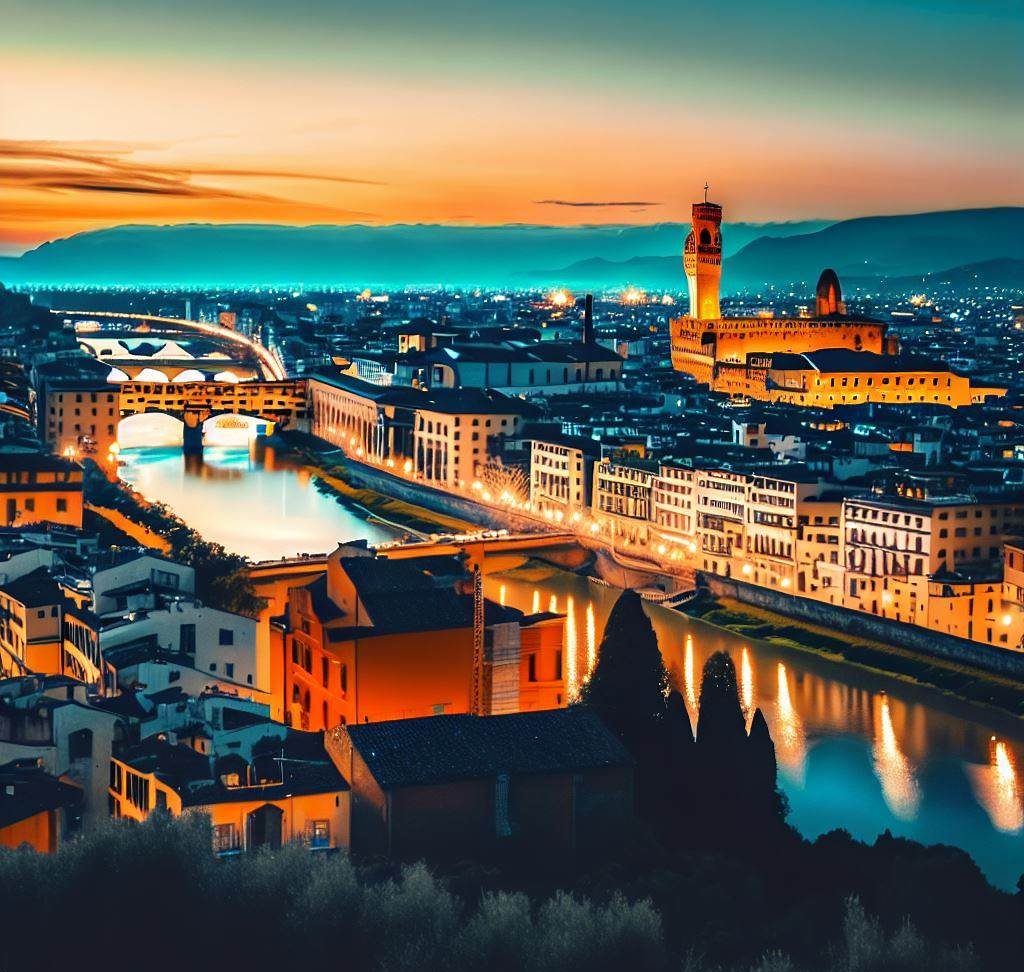
Contents
- 1 Introduction
- 2 The Birthplace of the Renaissance
- 3 UNESCO’s World Heritage Site 1982
- 4 The Athens of the Middle Ages
- 5 Gaius Julius Caesar and the Arno River
- 6 Elegant Piazzas
- 7 Breathtaking Palazzi
- 8 The Origin of Dante
- 9 Classical Music
- 10 An Art Giant
- 11 The Excellence of Niccolò Machiavelli
- 12 The Birthplace of Leonardo da Vinci’s Father
- 13 Studded with Fashion
- 14 A Cuisine to Remember
- 15 The Invention of Opera
- 16 Ponte Vecchio
- 17 Lampredotto
- 18 Conclusion
Introduction
Nestled in the heart of Tuscany, Italy, Florence stands as a timeless masterpiece in its own right, a city that has left an indelible mark on the annals of human history and culture.
Nestled in the heart of Italy, Florence is often hailed as the “Cradle of the Renaissance.” Its enchanting streets and alleys resound with echoes of artistic brilliance, intellectual fervor, and architectural marvels. If you’re curious about other destinations with rich cultural histories, you might want to explore “Oklahoma’s Claim to Fame,” which delves into the unique aspects that make Oklahoma known.
With a legacy that spans centuries, Florence has earned its place on the world stage as a repository of human creativity and ingenuity. This enchanting city has been a muse to countless artists, thinkers, and visionaries, each leaving their unique imprint on its canvas. From the grandeur of the Uffizi Gallery to the delicate beauty of Ponte Vecchio, every corner of Florence speaks to the city’s cultural richness and vibrant heritage.
The Birthplace of the Renaissance
Florence, Italy, proudly holds the esteemed title of “The Birthplace of the Renaissance.” This designation reflects its pivotal role in catalyzing a transformative era that shaped the course of human history.
The Renaissance, a period characterized by the profound concept of “rebirth,” served as an intellectual and artistic reawakening from the 14th to the 17th century. It represented a revival of classical learning, innovative thinking, and creative expression that has left an indelible mark on human history. Amidst the treasures of this intellectual rebirth, you can explore the rich Romanian heritage, which has its own unique place in this historical tapestry. Dive deeper into “Romanian treasures and heritage” on TalesofTravelers.com to uncover the fascinating aspects of Romania’s contribution to this transformative era.
During this period, Florence emerged as a cultural epicenter, nurturing the talents of remarkable artists, thinkers, and scholars. Visionaries like Leonardo da Vinci, Michelangelo, and Raphael found their inspiration within the city’s walls, producing masterpieces that have left an indelible mark on the world’s artistic heritage.
UNESCO’s World Heritage Site 1982
In 1982, Florence was granted the prestigious designation of a UNESCO World Heritage Site, a testament to the city’s exceptional cultural and historical significance. This coveted recognition underscores Florence’s enduring impact on art, architecture, and human civilization.
The historic center of Florence, with its wealth of architectural masterpieces and cultural landmarks, played a pivotal role in shaping the course of Western art and thought. From the intricate details of the Duomo’s dome to the grandeur of the Uffizi Gallery, the city’s treasures are a living testament to its illustrious past.
The Athens of the Middle Ages
During the Middle Ages, Florence garnered the illustrious nickname “The Athens of the Middle Ages.” This honorary title celebrates the city’s remarkable contributions to intellectual and cultural advancements, akin to the renowned ancient Greek city of Athens. Much like Athens thrived in the realms of philosophy, literature, and learning, Florence, too, emerged as a dynamic hub of innovation and creativity, akin to the hidden gems of Vermont’s rich cultural landscape.
As a beacon of enlightenment in a time often characterized by political upheaval and societal challenges, Florence stood out for its commitment to scholarship, arts, and ideas. The city became a hub where thinkers, scholars, and artists converged to share knowledge, foster innovation, and shape the course of history.
Gaius Julius Caesar and the Arno River
In the intricate tapestry of history, the Arno River in Florence, Italy, bears witness to a remarkable connection with the legendary figure of Gaius Julius Caesar. The Arno, gracefully flowing through the heart of Florence, is not merely a geographical feature but a silent testament to the city’s historical significance.
It is said that during the Roman era, Gaius Julius Caesar, one of history’s most prominent military commanders and statesmen, crossed the Arno River during his military campaigns.
While specific details may be shrouded in the mists of time, the notion of Caesar’s presence along the Arno adds an extra layer of historical depth to Florence’s narrative.
Elegant Piazzas
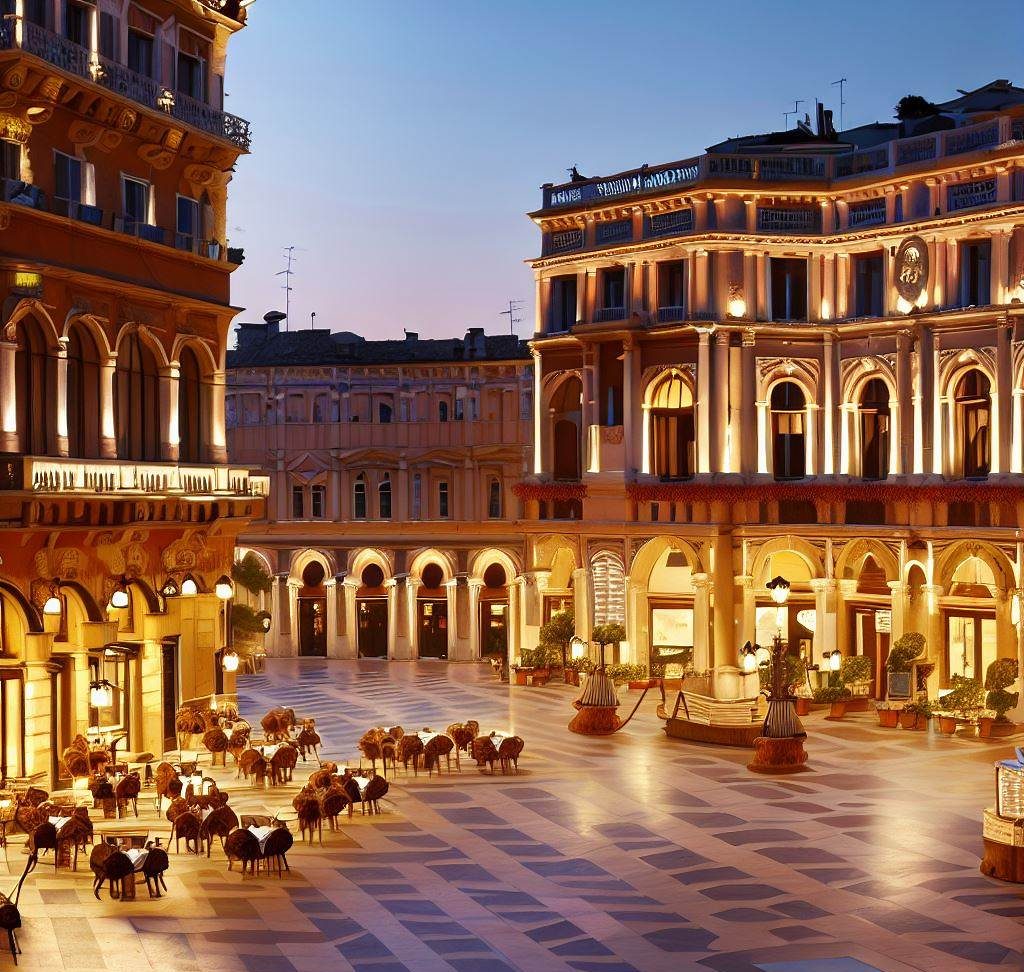
Florence, the jewel of Tuscany, boasts a collection of elegant piazzas that serve as the vibrant heartbeats of the city’s social and cultural life. These open squares, surrounded by stunning architecture, art, and history, encapsulate the essence of Florence’s allure.
Piazza della Signoria, perhaps the most famous among them, is an outdoor gallery adorned with captivating sculptures and monuments. The imposing Palazzo Vecchio stands as a guardian of the square, exuding an aura of power and history. If you’re interested in the intersection of history and scientific contributions, you’ll also appreciate the remarkable legacy of Russian scientific contributions.
Michelangelo’s David, a symbol of human perfection, greets visitors with its grandeur, while the Fountain of Neptune adds a touch of mythological charm.
Breathtaking Palazzi
Florence’s allure extends beyond its artistic treasures to its architectural marvels, prominently showcased in its stunning palazzi. These palaces stand as elegant witnesses to the city’s historical opulence and artistic sophistication.
Architectural Gems: The term “palazzi” refers to grand palaces that dot Florence’s landscape, each a masterpiece of architectural craftsmanship. These structures embody various architectural styles, including Renaissance, Gothic, and Baroque, reflecting the city’s evolving tastes and influences over the centuries.
The Origin of Dante
Dante Alighieri, the revered Italian poet, and author of the epic masterpiece “The Divine Comedy,” was born in Florence in 1265. His birthplace holds significant importance in understanding the origins of this literary giant and the context that shaped his remarkable contributions to literature.
Dante’s birth in Florence, a city known for its intellectual and artistic vibrancy during the Middle Ages, played a crucial role in nurturing his talents. He grew up in a period of political turbulence and cultural ferment, where intellectual pursuits and philosophical discourse were thriving. Florence, often referred to as the “Athens of the Middle Ages,” offered a fertile ground for creative minds to flourish.
Classical Music
Classical music stands as a cornerstone of artistic expression, renowned for its sophistication, emotional depth, and timeless appeal. It encompasses a vast repertoire of compositions created by some of history’s greatest composers, ranging from the Baroque era to the Romantic period and beyond.
Characterized by its intricate melodies, harmonies, and rich orchestration, classical music transcends cultural boundaries, speaking to the universal human experience. Compositions often evoke a wide range of emotions, from the serene tranquility of a Mozart concerto to the powerful drama of a Beethoven symphony.
An Art Giant
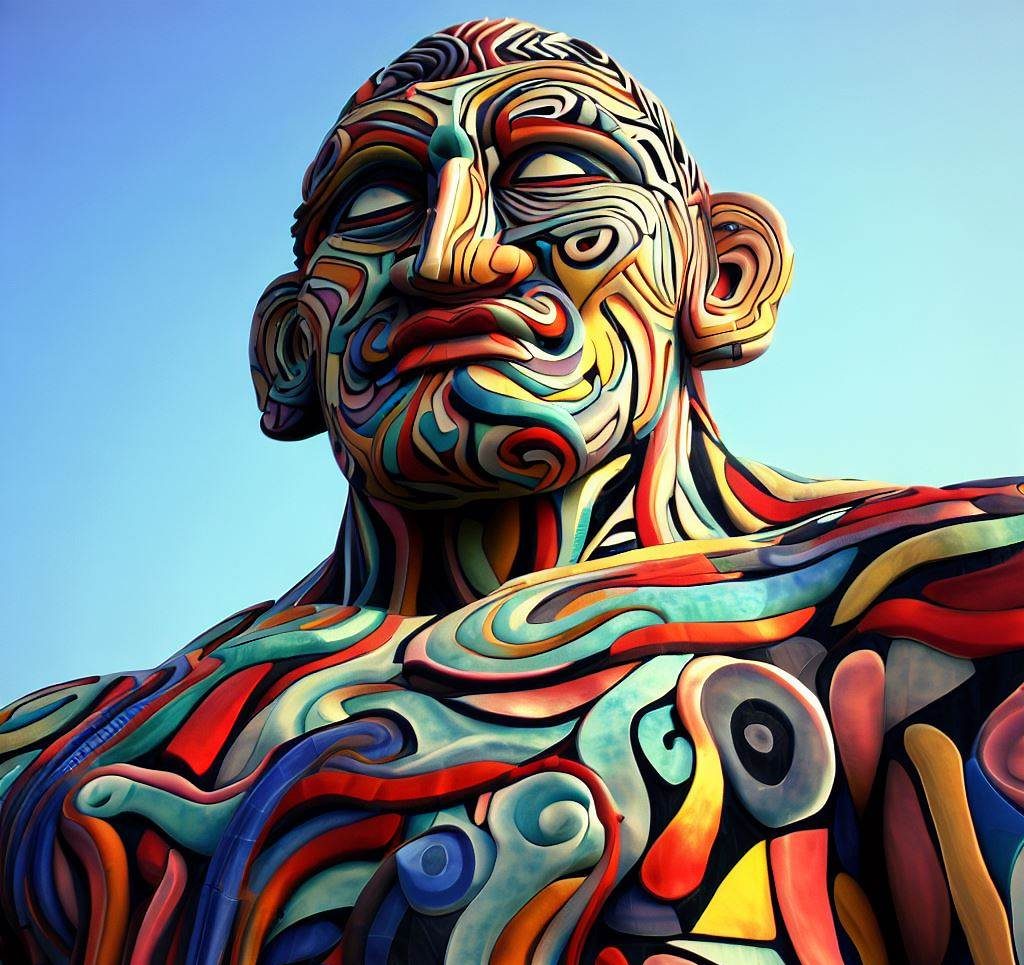
Florence, Italy, stands proudly as an art giant, its legacy etched into the very fabric of its being. This city, often referred to as the “Cradle of the Renaissance,” has nurtured and birthed some of the most profound artistic masterpieces in human history. Its streets, piazzas, and galleries are not mere spaces but sanctuaries where art thrives.
Home to luminaries like Leonardo da Vinci, Michelangelo, and Botticelli, Florence has woven their creative brilliance into its urban landscape. The Uffizi Gallery, a true treasure trove, houses an unparalleled collection of Renaissance artworks that have withstood the test of time. The delicate brushstrokes, the vivid colors, and the emotional depth of these masterpieces convey stories and sentiments that span centuries.
The Excellence of Niccolò Machiavelli
Niccolò Machiavelli, a Renaissance-era Italian philosopher, diplomat, and political theorist, is celebrated for his profound insights into the mechanics of power and leadership. Born in Florence in 1469, Machiavelli’s contributions to political thought have left an enduring mark on the world.
His most famous work, “The Prince,” is a seminal treatise on statecraft and political strategy. In this work, Machiavelli dispels idealistic notions of rulership, advocating for a pragmatic approach to governance. He explores the art of statecraft, offering unvarnished advice to rulers on maintaining power, navigating alliances, and making tough decisions for the greater good.
The Birthplace of Leonardo da Vinci’s Father
Vinci, a charming town located amidst the picturesque landscapes of Tuscany, Italy, holds the distinction of being the birthplace of Leonardo da Vinci’s father, Ser Piero da Vinci. This quaint town, with its idyllic setting, played a role in shaping the ancestry of one of the greatest polymaths in history.
Nestled on a hilltop, Vinci exudes an old-world charm that seems to resonate with the intellectual and creative spirit of the da Vinci family. Ser Piero da Vinci, a notary and legal scholar, was a pivotal figure in Leonardo’s lineage.
The influence of Vinci’s serene surroundings and the intellectual milieu of its time might have subtly contributed to the family’s inclination towards knowledge and artistic exploration.
Studded with Fashion
Florence, a city steeped in history and art, is not only known for its cultural heritage but also for its undeniable influence on the world of fashion. Often regarded as a fashion capital, Florence’s streets exude an air of sophistication and style that has been cultivated over centuries.
From elegant boutiques to high-end designer stores, Florence offers a curated blend of traditional craftsmanship and contemporary trends. The city’s historical significance extends to its role as a birthplace of fashion and luxury, with a legacy dating back to the Renaissance era.
If you’re looking for a different kind of luxury experience, consider exploring Hungarian spa experiences, which are known for their relaxation and rejuvenation benefits.
These spa experiences have become increasingly popular among travelers seeking a unique and indulgent escape. To learn more about Hungary’s renowned spa culture, check out our dedicated page on “Hungarian spa experiences.”
A Cuisine to Remember
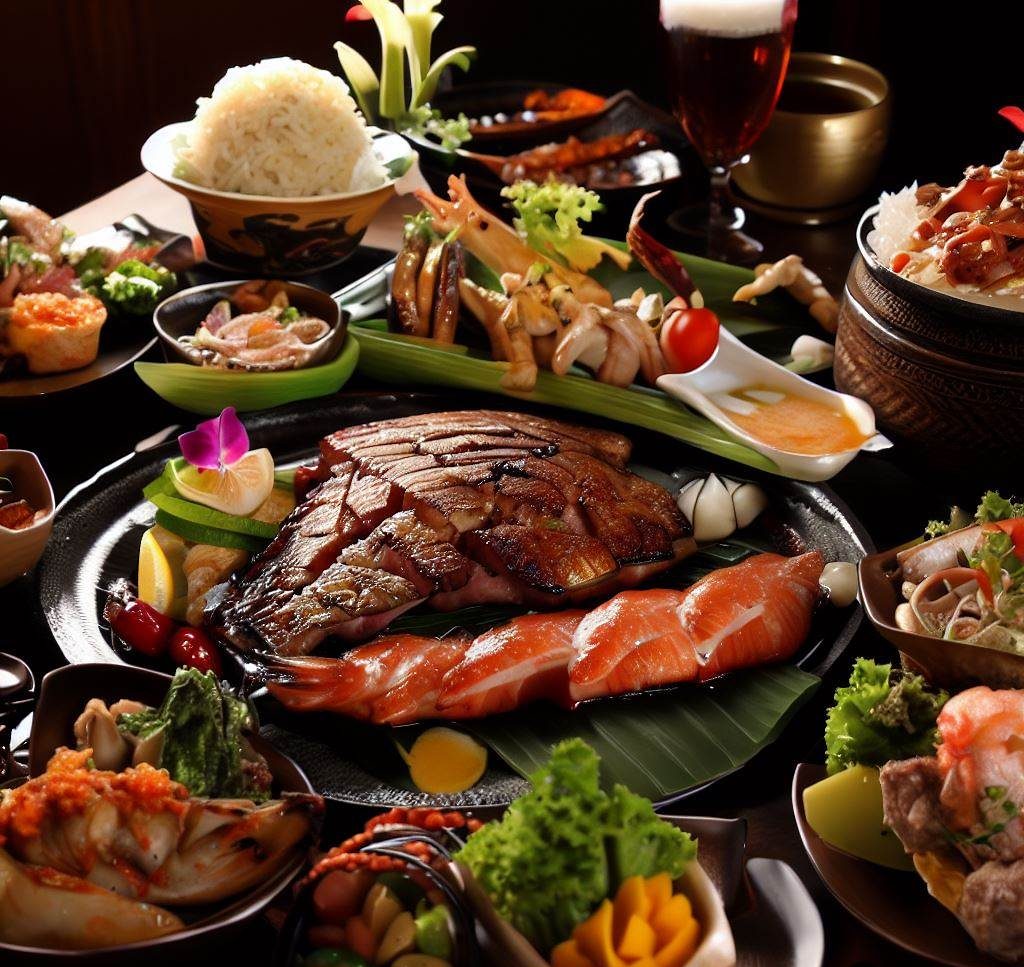
Florence’s culinary scene is a symphony of flavors that harmoniously blends tradition and innovation. The city’s cuisine is a testament to its rich history and cultural diversity, offering a tantalizing array of dishes that leave a lasting impression on every palate.
At the heart of Florentine cuisine is an appreciation for simple, high-quality ingredients. From succulent steaks to robust pastas, each dish embodies the essence of Tuscany’s agricultural bounty.
The renowned Florentine steak, famously referred to as “Bistecca alla Fiorentina,” is a stellar illustration of this culinary ideology. Cooked to absolute perfection and adorned with just the right amount of seasoning, it wonderfully exemplifies the region’s unwavering commitment to allowing the ingredients to take center stage.
Speaking of exceptional achievements, if you’re intrigued by the art of exploration, you’ll find another impressive endeavor in Russian space exploration. Discover more about this fascinating topic on the Tales of Travelers page dedicated to Russian space exploration.
The Invention of Opera
Opera, a majestic art form that marries music and drama, finds its origins in the cultural heart of Florence, Italy. In the late 16th century, a group of intellectuals and artists sought to revive the dramatic performances of ancient Greece by blending poetry, music, and theater. This ambitious endeavor gave birth to opera, a genre that would forever change the landscape of performing arts.
The seminal work often credited with the inception of opera is “Dafne,” composed by Jacopo Peri in 1597. Collaborating with librettist Ottavio Rinuccini, Peri sought to create a new kind of musical experience, where emotions were intensified through music and sung dialogue. This pioneering piece marked the transition from spoken theater to a harmonious fusion of vocal and instrumental elements.
Ponte Vecchio
Ponte Vecchio, meaning “Old Bridge” in Italian, is a historic and iconic landmark that graces the enchanting city of Florence, Italy. This centuries-old bridge stands as a testament to the city’s rich history, architectural ingenuity, and cultural significance.
Spanning the Arno River, Ponte Vecchio has a storied past that dates back to ancient times. Originally constructed in Roman times, the bridge has undergone multiple transformations throughout the centuries, surviving wars, floods, and the tests of time.
What sets Ponte Vecchio apart from other bridges is its unique architectural feature – a series of shops and houses that line its edges. If you’re interested in exploring similar cultural heritage sites, you might also want to check out the page on Virginia’s Cultural Heritage to discover the rich history and significance of Virginia’s cultural treasures.
These shops were initially occupied by butchers and fishmongers, but over time, they transitioned into spaces for jewelers, goldsmiths, and art dealers. Today, the bridge’s shops continue to evoke the spirit of craftsmanship and commerce that has defined it for centuries.
Lampredotto
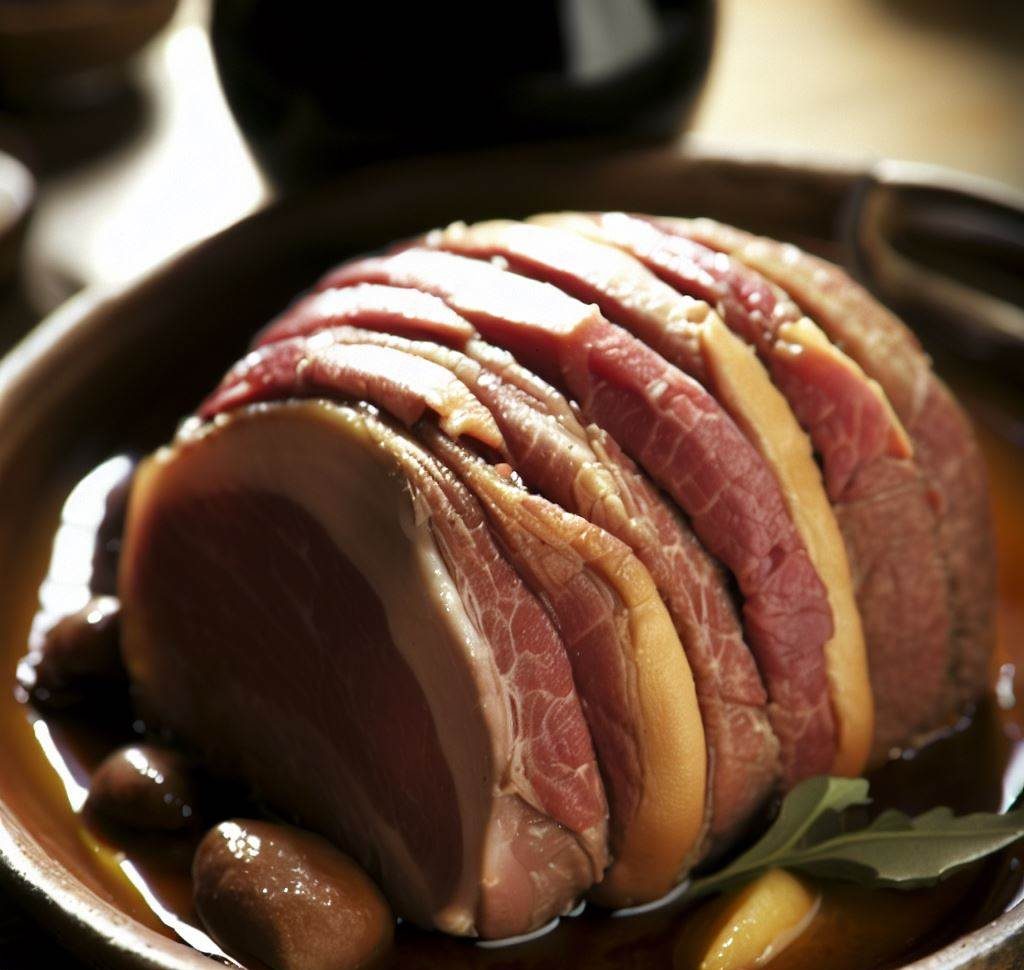
Lampredotto, a traditional Florentine street food, holds a special place in the hearts of locals and visitors alike. This unique dish is a testament to Florence’s rich culinary heritage and a must-try for those seeking an authentic taste of the city.
Derived from the fourth stomach of a cow, lampredotto might seem unconventional at first, but its flavors and history make it a beloved staple. The dish’s name is derived from the Italian word “lampreda,” which refers to a type of eel-like fish. The comparison is due to the visual resemblance between the dish and the fish’s texture.
Conclusion
Florence’s legacy is an intricate tapestry woven with the threads of art, history, and innovation. From its Renaissance roots to its culinary delights, the city’s fame extends far beyond its borders. Its streets resonate with the echoes of geniuses and visionaries, reminding us that Florence’s enchantment is eternal.
